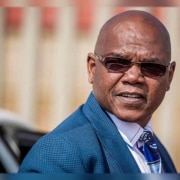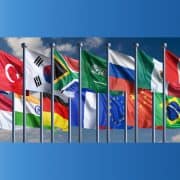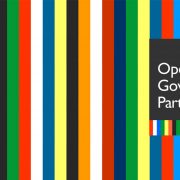|
Getting your Trinity Audio player ready...
|
Source: Transparency International
The corrupt don’t like paper trails, they like secrecy. What better way to hide corrupt activity than with a secret company or trust as a front? You can anonymously open bank accounts, make transfers and launder dirty money. If the company is not registered in your name, it can’t always be traced back to you.
This is known as a shell company and the person who actually benefits from and controls it – hidden behind layers of lawyers, accountants and nominee shareholders – is the beneficial owner.
The corruption risk that beneficial ownership secrecy poses led the G20 – of which South Africa is a member – to adopt beneficial ownership principles in 2014 to tackle the problem. Yet, in 2015, Transparency International’s (TI) analysis of how well G20 countries were implementing the principles showed that 15 of these countries had weak or average beneficial ownership legal frameworks.
Since the Panama Papers came out in 2016 we have increasingly seen how shell companies are used either to operationalise corrupt deals or to launder stolen money. Our follow-up report shows that some progress has been made since 2015, but that the pace of change is too slow – and the G20 countries are suffering for it.
Download the report, titled G20 Leaders or Laggards? Reviewing G20 promises on ending anonymous companies.
Key findings:
- G20 countries are starting to tackle anonymous company ownership – but progress is slow
- The majority of countries still do not know who own and controls companies in their territories and do not keep up-to-date information on them
- Verification of information is weak across the board. This undermines the ability of competent authorities to investigate suspicious cases, and the ability of banks and businesses to carry out proper due diligence
- Rhetoric does not always translate into action
- Gatekeepers such as lawyers, accountants, real estate agents, and trusts and company service providers remain money laundering weak-spots
Shell companies a conduit for dirty money
Exposed in 2017, the Russian Laundromat scandal shows the extent to which anonymously owned companies are enabling corruption: a group of individuals in G20 member Russia allegedly created 21 shell companies, which then moved and laundered ill-gotten money out of the country, making more than 26 000 payments to 96 different countries including every G20 country aside from Brazil.
The majority of G20 countries still do not know who owns and controls shell companies and trusts in their territories because of inadequate beneficial ownership legal frameworks. Publicly available central registers – where the details of every beneficial owner of every company are stored – would help gather this information. Only six G20 countries – Brazil, France, Germany, Italy, the United Kingdom and G20 guest country Spain – now have central registers, and only the UK’s is publicly available.
Even in cases where central registers exist, none of them require registry authorities to verify information and in only three countries can information be verified in suspicious cases. As things stand, no G20 country is in a strong position to investigate suspicious cases of company ownership.
Most of G20 not up to standard
South Africa’s beneficial ownership legal framework is viewed as average – more than three years after the beneficial ownership principles were adopted. Furthermore, the country, with Argentina, Australia, Brazil, Germany, India, Saudi Arabia and Turkey) has still not conducted an anti-money laundering risk assessment within the last six years.
No G20 countries require register authorities to verify the information collected in company registers as standard. Only in three countries (Argentina, Italy and guest country Spain) might information be verified in suspicious cases.
Only eight G20 countries (Australia, China, France, India, Indonesia, Japan, Mexico and the UK) require financial institutions to use independent and reliable sources to verify the beneficial owner in cases considered to be high risk.
In nine G20 countries (Australia, Brazil, Canada, Germany, Indonesia, Russia, South Korea, Turkey and the US), financial institutions can still proceed with a transaction even if they cannot identify the beneficial owner.
Lawyers are not required to identify the beneficial owner of clients in nine countries, (Argentina, Australia, Brazil, Canada, China, India, Japan, South Korea and the US). Real estate agents in five G20 countries (Australia, Canada, China, South Korea and the US) are not required by law to identify the beneficial owners of clients buying and selling property, despite major corruption scandals involving high-end real estate.
Eight G20 countries (Australia, Canada, China, Korea, Mexico, South Africa, Saudi Arabia and the US) still permit people to act as nominee shareholders without any requirement to disclose on whose behalf they are actually working.
G20 should be setting example, but isn’t
“The G20 is a group of leading economies, but it seems that their leadership is slow paced when it comes to seriously cracking down on the abuse of legal entities that are incorporated or operating in their own territories,” said TI’s senior global advocacy manager Maggie Murphy. “They need to step up their efforts to create strong beneficial ownership legal frameworks and ensure that they enforce them.”
Our key recommendations on beneficial ownership are that:
- governments establish a central register of beneficial ownership information and make it publicly available in open data format;
- governments resource and establish mechanisms to ensure that at least some verification of beneficial ownership information takes place, such as cross-checking the data against other government and tax databases, or conducting random inspections;
- financial institutions, lawyers, accountants, real estate agents and trusts should not be allowed to proceed with transactions if the beneficial owner of their customer cannot be identified;
- governments undertake national money laundering risk assessments on a regular basis;
- governments consider prohibiting nominee shareholders;
- governments require the registration of both domestic and foreign trusts operating in their country. Information on all parties to the trust (trustee, settlor and beneficiaries) and the real individuals behind them should be recorded.







